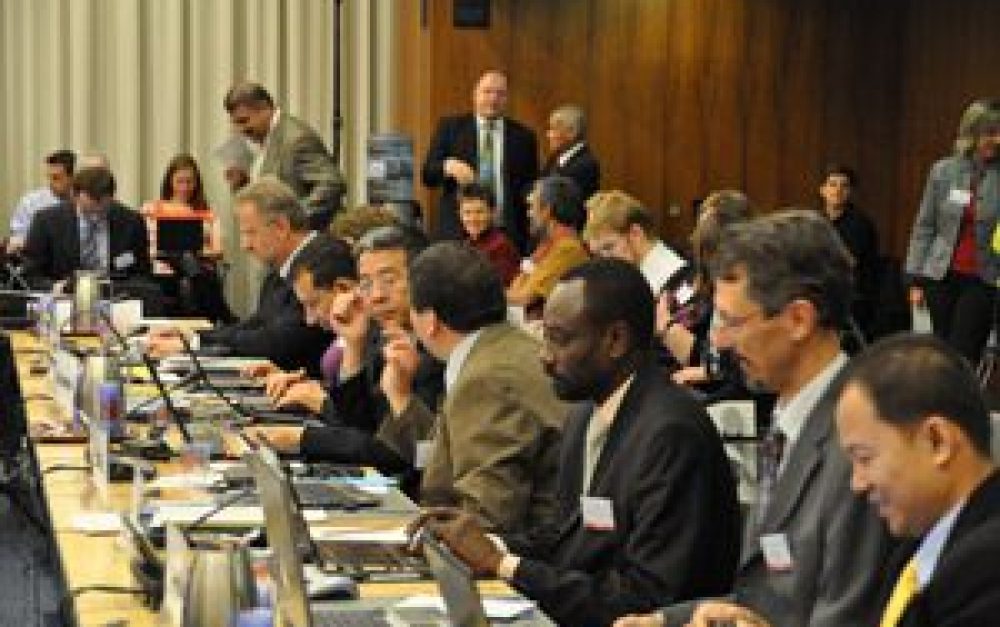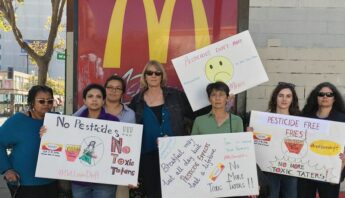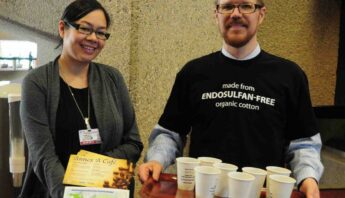It's Friday morning Geneva; the last day of POPRC6. For the last four days, scientific experts, government delegates, and representatives from industry and NGOs like PAN have been discussing some of the most dangerous chemicals in the world: those which are not only highly toxic but also extremely persistent. Long after they fulfill their intended purposes, these "chemical zombies" continue wander the Earth inflicting indiscriminate damage, refusing to die.
All of the big decisions of the week have yet to be taken:
- Do we allow plastic and foam contaminated with endocrine disrupting flame retardants to be recycled into carpet, toys, and other items destined for our homes?
- What about waste containing PFOS, a chemical that disrupts hormones, causes cancer and developmental delays, and is completely resistant to degradation? Should we continue sending these items to landfills, or should we try to store these items until we know how to safely destroy them?
- Are short-chain chlorinated paraffins (SCCP) and hexabromocyclododecane (HBCD) persistant organic pollutants that warrant global action?
- …And of most interest to PAN: Should endosulfan be banned?
With regard to this last question, things are looking … up in the air.
After hours of contentious discussion on Monday night, Tuesday afternoon, and Tuesday night, deliberations were moved to a closed door session — a so called "drafting group," closed to observers like PAN. While we it's unfortunate that we were unable to participate in the subsequent negotiations, this has also meant that the industry was excluded and their non-stop barrage of objections was cut off.
On Thursday afternoon, the drafting group came back with a revised document. Overall, it's still a strong document that unequivocally makes the case for a global phaseout, but it has been weakened. For example, it now contains the unsubstantiated claim that a global ban would cost the Indian chemical industry $40 million a year in lost exports. This number seems impossibly high given that most major users outside of India (and China, which has its own domestic manufacturers) have already banned it or committed to phasing it out. So whether or not it's banned under the Stockholm Convention, India's export market for endosulfan is disappearing. The document also claims a ban would cost the Indian manufacturers 6,000 jobs. But Excel Crop Care, responsible for more than half of India's production, has only about 1,200 employees in total and makes numerous products in addition to endosulfan.
China & "to vote, or not to vote" – these are the questions
But this is all water under the bridge at this point. The members of the drafting groups have agreed to these changes and others, presumably in the spirit of compromise. All that remains to be decided is that most important question: Should endosulfan be banned? It's clear that India will not agree to this, no matter what the document says. It's also clear that the overwhelming majority of countries on the committee are for a ban. What's unclear is China's position. They opposed moving endosulfan toward a ban at earlier meetings, but have been totally silent on the question this week. Active support from China would help win over countries who might be on the fence; their opposition could grind things to a halt.
But the big question is whether they will take actually take a vote. The committee is loath to do so, on the logic that consensus-based decision making fosters cooperation and compliance with whatever the decision is. It's also embarrassing for countries to be out voted. So some members may prefer to put off making a decision until next year, on the hope that views may change in the meantime. But doing so is unlikely to change the mind of India, who's given every indication that no matter what the evidence, they will oppose a ban on endosulfan.
Hopefully common sense will prevail, and later today the committee will vote to recommend that endosulfan be banned.
Karl Tupper has been posting from Geneva, Switzerland all week. Previous posts in this series:







